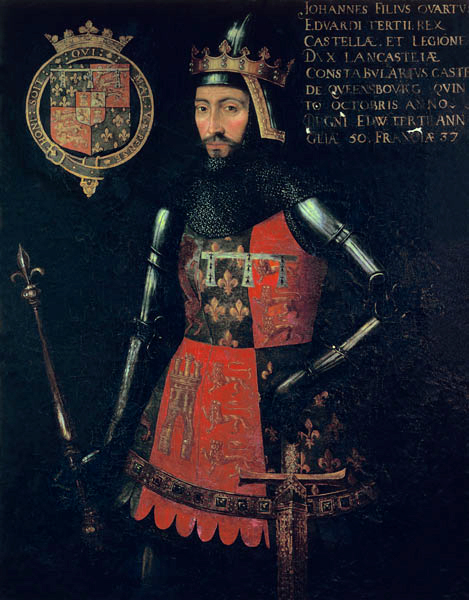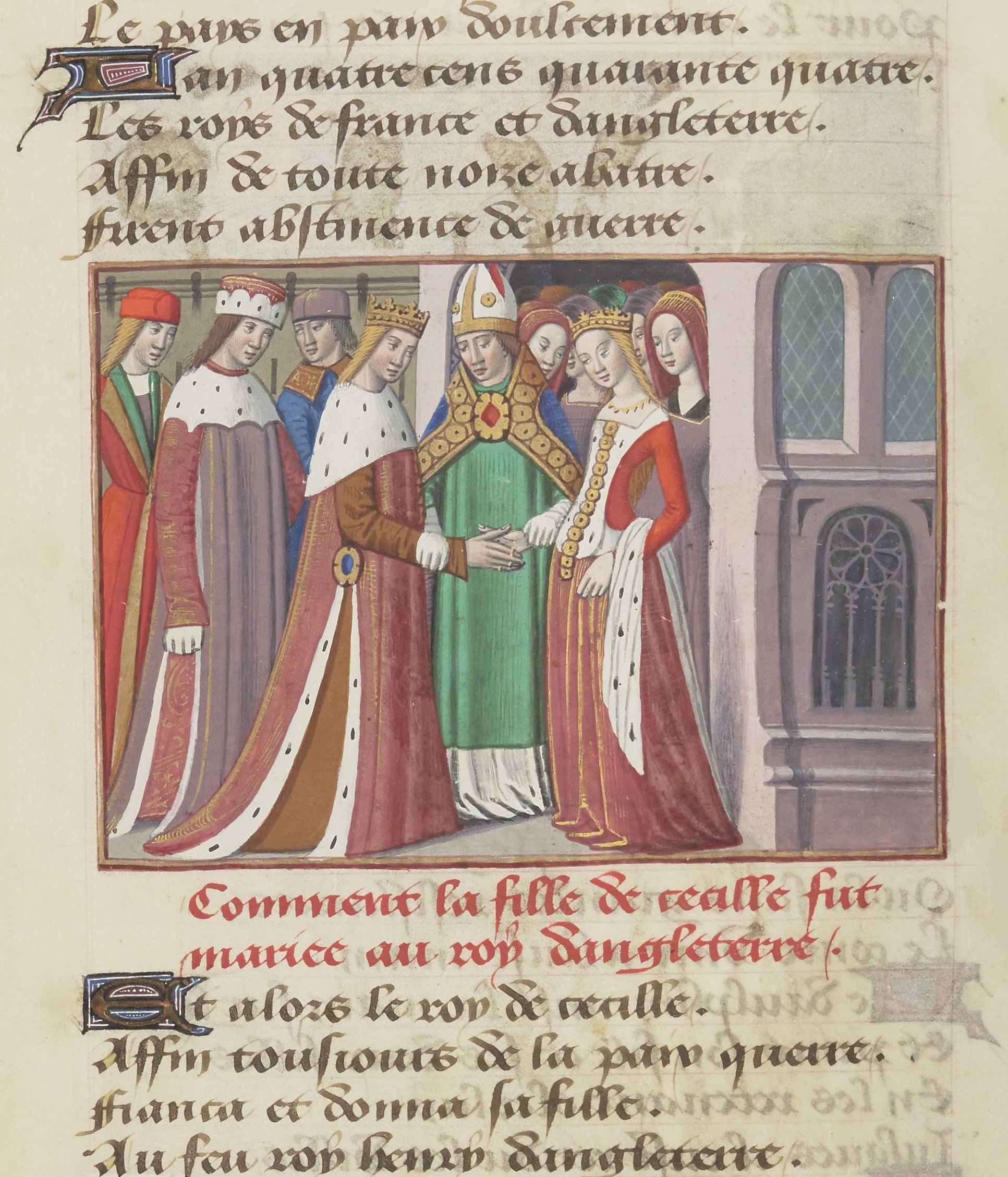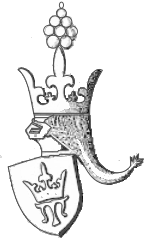|
1461
Year 1461 ( MCDLXI) was a common year starting on Thursday of the Julian calendar. Events January–December * February 2 – Battle of Mortimer's Cross: Yorkist troops led by Edward, Duke of York defeat Lancastrians under Owen Tudor and his son Jasper Tudor, Earl of Pembroke, in Wales. * February 17 – Second Battle of St Albans, England: The Earl of Warwick's army is defeated by a Lancastrian force under Queen Margaret, who recovers control for her husband. * March 4 – The Duke of York seizes London, and proclaims himself King Edward IV of England. * March 5 – Wars of the Roses: Henry VI of England is deposed by Edward, Duke of York. * March 29 – Battle of Towton: Edward IV defeats Queen Margaret, to make good his claim to the English throne (thought to be the bloodiest battle ever fought in England). * July 10 – Stephen Tomašević becomes the last King of Bosnia, on the death of his father Stephen Thomas; he is crowned on ... [...More Info...] [...Related Items...] OR: [Wikipedia] [Google] [Baidu] |
Wars Of The Roses
The Wars of the Roses, known at the time and in following centuries as the Civil Wars, were a series of armed confrontations, machinations, battles and campaigns fought over control of the English throne from 1455 to 1487. The conflict was fought between supporters of the House of Lancaster and House of York, two rival cadet branches of the royal House of Plantagenet. The conflict resulted in the end of Lancaster's male line in 1471, leaving the Tudors of Penmynydd, Tudor family to inherit their claim to the throne through the female line. Conflict was largely brought to an end upon the union of the two houses through marriage, creating the Tudor dynasty that would subsequently rule England. The Wars of the Roses were rooted in English socio-economic troubles caused by the Hundred Years' War (1337–1453) with France, as well as the quasi-military bastard feudalism resulting from the powerful duchies created by King Edward III. The mental instability of King Henry VI of Englan ... [...More Info...] [...Related Items...] OR: [Wikipedia] [Google] [Baidu] |
Battle Of Towton
The Battle of Towton took place on 29 March 1461 during the Wars of the Roses, near Towton in North Yorkshire, and "has the dubious distinction of being probably the largest and bloodiest battle on English soil". Fought for ten hours between an estimated 50,000 soldiers in a snowstorm on Palm Sunday, the Yorkist army achieved a decisive victory over their House of Lancaster, Lancastrian opponents. As a result, Edward IV deposed the Lancastrian Henry VI of England, Henry VI and secured the English throne. Henry VI succeeded his father, Henry V of England, Henry V, when he was nine months old in 1422, but was a weak, ineffectual and mentally unsound ruler, which encouraged the nobles to scheme for control over him. The situation deteriorated in the 1450s into a civil war between his House of Beaufort, Beaufort relatives and his wife, Margaret of Anjou, Queen Margaret, on one side, with those of his cousin Richard, Duke of York, on the other. In October 1460, Parliament of En ... [...More Info...] [...Related Items...] OR: [Wikipedia] [Google] [Baidu] |
Edward IV Of England
Edward IV (28 April 1442 – 9 April 1483) was King of England from 4 March 1461 to 3 October 1470, then again from 11 April 1471 until his death in 1483. He was a central figure in the Wars of the Roses, a series of civil wars in England fought between the Yorkist and Lancastrian factions between 1455 and 1487. Edward inherited the Yorkist claim to the throne at the age of eighteen when his father, Richard, Duke of York, was killed at the Battle of Wakefield in December 1460. After defeating Lancastrian armies at Mortimer's Cross and Towton in early 1461, he deposed King Henry VI and took the throne. His marriage to Elizabeth Woodville in 1464 led to conflict with his chief advisor, Richard Neville, Earl of Warwick, known as the "Kingmaker". In 1470, a revolt led by Warwick and Edward's brother George, Duke of Clarence, briefly re-installed Henry VI. Edward fled to Flanders, where he gathered support and invaded England in March 1471; after victories at the ba ... [...More Info...] [...Related Items...] OR: [Wikipedia] [Google] [Baidu] |
Margaret Of Anjou
Margaret of Anjou (; 23 March 1430 – 25 August 1482) was Queen of England by marriage to King Henry VI from 1445 to 1461 and again from 1470 to 1471. Through marriage, she was also nominally Queen of France from 1445 to 1453. Born in the Duchy of Lorraine into the House of Valois-Anjou, Margaret was the second eldest daughter of René of Anjou King of Naples, and Isabella, Duchess of Lorraine. Margaret was one of the principal figures in the series of dynastic civil wars known as the Wars of the Roses and at times personally led the Lancastrian faction. Some of her contemporaries, such as the Duke of Suffolk, praised "her valiant courage and undaunted spirit" and the 16th-century historian Edward Hall described her personality in these terms: "This woman excelled all other, as well in beauty and favour, as in wit and policy, and was of stomach and courage, more like to a man, than a woman". Owing to her husband's frequent bouts of insanity, Margaret ruled the kingdom ... [...More Info...] [...Related Items...] OR: [Wikipedia] [Google] [Baidu] |
Richard Neville, 16th Earl Of Warwick
Richard Neville, 16th Earl of Warwick, 6th Earl of Salisbury (22 November 1428 – 14 April 1471), known as Warwick the Kingmaker, was an English nobleman, administrator, landowner of the House of Neville fortune and military commander. The eldest son of Richard Neville, 5th Earl of Salisbury, he became Earl of Warwick through marriage, and was the wealthiest and most powerful English peer of his age, with political connections that went beyond the country's borders. One of the leaders in the Wars of the Roses, originally on the Yorkist side but later switching to the Lancastrian side, he was instrumental in the deposition of two kings, which led to his epithet of " Kingmaker". Through fortunes of marriage and inheritance, Warwick emerged in the 1450s at the centre of English politics. Originally, he was a supporter of King Henry VI; however, a territorial dispute with Edmund Beaufort, Duke of Somerset, led him to collaborate with Richard, Duke of York, ... [...More Info...] [...Related Items...] OR: [Wikipedia] [Google] [Baidu] |
Stephen Thomas Of Bosnia
Stephen Thomas ( sh-Latn-Cyrl, separator=/, Stefan Tomaš, Стефан Томаш, sh-Latn-Cyrl, separator=/, label=none, Stjepan Tomaš, Стјепан Томаш; 1411 – 10 July 1461), a member of the House of Kotromanić, reigned from 1443 until his death as the penultimate king of Bosnia. An illegitimate son of King Ostoja, Thomas succeeded King Tvrtko II, but his accession was not recognized by the leading magnate of the Kingdom of Bosnia, Stjepan Vukčić Kosača. The two engaged in a civil war which ended when the King repudiated his wife, Vojača, and married the insubordinate nobleman's daughter, Catherine of Bosnia, Catherine. Thomas and his second wife, both raised in the Bosnian Church tradition, converted to Roman Catholicism and sponsored construction of churches and monasteries throughout the kingdom. Throughout his reign, Thomas waged a war with the Serbian Despotate over the lucrative mining town of Srebrenica and its surroundings, in addition to (or in ... [...More Info...] [...Related Items...] OR: [Wikipedia] [Google] [Baidu] |
Stephen Tomašević Of Bosnia
Stephen Tomašević or Stephen II ( sh-Latn-Cyrl, Stjepan/Stefan Tomašević, Стјепан/Стефан Томашевић; – 25 May 1463) was the last sovereign from the Bosnian Kotromanić dynasty, reigning as Despot of Serbia briefly in 1459 and as King of Bosnia from 1461 until 1463. Stephen's father, King Thomas, had great ambitions for him. An attempt to expand into Croatia by marrying Stephen to a wealthy noblewoman failed, and negotiations for a marital alliance with the Sforzas of Milan were abandoned when a more prestigious opportunity presented itself: marriage to the heiress Maria of Serbia. Celebrated in April 1459, it made Stephen the ruler of the remnants of the neighbouring country. The intent was to unite the Kingdom of Bosnia and the Serbian Despotate under Stephen to combat the expanding Ottoman Empire. However, Stephen's Catholicism made him unpopular in Orthodox Serbia. After ruling it for merely two months, he surrendered it to the encroaching Ottoma ... [...More Info...] [...Related Items...] OR: [Wikipedia] [Google] [Baidu] |
Battle Of Mortimer's Cross
The Battle of Mortimer's Cross was fought on 2 February 1461 near Kingsland, Herefordshire (between Leominster and Leintwardine, by the River Lugg), not far from the Welsh border. It was a major battle of the Wars of the Roses. The opposing forces were an army led by Jasper Tudor and his father, Owen Tudor, and other nobles loyal to King Henry VI of the House of Lancaster, his wife, Margaret of Anjou, and their seven-year-old son, Edward, Prince of Wales, on one side, and the army of Edward, Earl of March. Some sources say it was fought on 3 February, and the exact location has been the subject of some speculation. Background In 1460, with King Henry VI a prisoner, Richard, Duke of York (father of Edward, Earl of March) attempted to depose Henry and become king himself. His closest supporters dissuaded him from this step, but he secured an Act of Accord by which he and his descendants would inherit the throne on Henry's death, thus disinheriting Henry's young son Edw ... [...More Info...] [...Related Items...] OR: [Wikipedia] [Google] [Baidu] |
Henry VI Of England
Henry VI (6 December 1421 – 21 May 1471) was King of England from 1422 to 1461 and 1470 to 1471, and English claims to the French throne, disputed King of France from 1422 to 1453. The only child of Henry V of England, Henry V, he succeeded to the Throne of England, English throne at the age of eight months, upon his father's death, and to the List of French monarchs, French throne on the death of his maternal grandfather, Charles VI of France, Charles VI, shortly afterwards. Henry was born during the Hundred Years' War (1337–1453), he is the only English monarch to have been crowned King of France, following his coronation at Notre-Dame de Paris in 1431 as Henry II. His early reign, when England was ruled by a Regency government, 1422–1437, regency government, saw the pinnacle of English power in Kingdom of France, France. However, setbacks followed once he assumed full control in 1437. The young king faced military reversals in France, as well as political and financia ... [...More Info...] [...Related Items...] OR: [Wikipedia] [Google] [Baidu] |
March 29
Events Pre-1600 * 1430 – The Ottoman Empire under Murad II captures Thessalonica from the Republic of Venice. * 1461 – Battle of Towton: Edward of York defeats Queen Margaret to become King Edward IV of England, bringing a temporary stop to the Wars of the Roses. * 1549 – The city of Salvador, Bahia, the first capital of Brazil, is founded. 1601–1900 * 1632 – Treaty of Saint-Germain is signed returning Quebec to French control after the English had seized it in 1629. * 1792 – King Gustav III of Sweden dies after being shot in the back at a midnight masquerade ball at Stockholm's Royal Opera 13 days earlier. * 1806 – Construction is authorized of the Great National Pike, better known as the Cumberland Road, becoming the first United States federal highway. * 1809 – King Gustav IV Adolf of Sweden abdicates after a '' coup d'état''. * 1809 – At the Diet of Porvoo, Finland's four Estates pledge allegiance to ... [...More Info...] [...Related Items...] OR: [Wikipedia] [Google] [Baidu] |
Second Battle Of St Albans
The Second Battle of St Albans was fought on 17 February 1461 during the Wars of the Roses in St Albans, Hertfordshire, England (the First Battle of St Albans had been fought in 1455). The army of the Yorkist faction, under the Earl of Warwick, attempted to bar the road to London north of the town. The rival Lancastrian army used a wide outflanking manoeuvre to take Warwick by surprise, cut him off from London and drive his army from the field. The victors also released the feeble King Henry VI, who had been Warwick's prisoner, from his captivity, but they ultimately failed to take advantage of their victory. Background The Wars of the Roses were fought between the supporters of two branches of the Plantagenet dynasty: the House of Lancaster, represented by the mentally-unstable King Henry VI, and those of the rival House of York. Richard of York quarrelled with several of Henry's court during the late 1440s and the early 1450s. He was respected as a soldier and admi ... [...More Info...] [...Related Items...] OR: [Wikipedia] [Google] [Baidu] |
Owen Tudor
Sir Owen Tudor (, – 2 February 1461) was a Welsh courtier and the second husband of Queen Catherine of Valois (1401–1437), widow of King Henry V of England. He was the grandfather of Henry VII, founder of the Tudor dynasty. Background Owen was a descendant of a prominent family from Penmynydd on the Isle of Anglesey, which traces its lineage back to Ednyfed Fychan (d. 1246), a Welsh official and seneschal to the Kingdom of Gwynedd. Tudor's grandfather, Tudur ap Goronwy, married Margaret, daughter of Thomas ap Llywelyn ab Owain of Cardiganshire, the last male of the senior branch of the princely house of Deheubarth. Margaret's elder sister married Gruffudd Fychan of Glyndyfrdwy, whose son was Owain Glyndŵr. Owen's father, Maredudd ap Tudur, and his uncles were prominent in Owain Glyndŵr's revolt against English rule, the Glyndŵr Rising. Historians consider the descendants of Ednyfed Fychan, including Owen Tudor, one of the most powerful families in 13th to 14th-ce ... [...More Info...] [...Related Items...] OR: [Wikipedia] [Google] [Baidu] |







